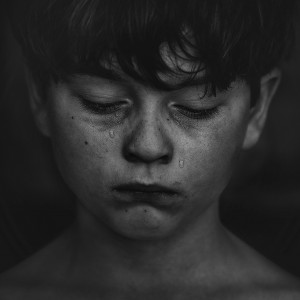 Trauma comes in many forms, and we probably all have suffered through something in our own childhood that we are still dealing with now.
Trauma comes in many forms, and we probably all have suffered through something in our own childhood that we are still dealing with now.
It’s bound to happen. We are born with our own personalities, strengths, and weaknesses and we grow up dealing with all of that plus the product of whatever our parents went through.
Some level of trauma is relatively normal. And then there’s excessive trauma that can lead to long-term adverse effects.
Many of our issues / traumas are the product of something that we went through or witnessed in our childhood. It’s important to know that and identify it because that’s where the healing begins!
So, I’m going to give you a super short lesson on that here, so you can start to identify it and heal traumas in your own life and those that are near and dear to you. Here goes.
What are Adverse Childhood Events defined medically?
Adverse Childhood Events are defined as traumatic or stressful events that children endure between birth and age 18. The Substance Abuse and Mental Health Services Administration (SAMHSA) lists the following specific traumatic events as ACEs.
- Physical Abuse
- Sexual Abuse
- Emotional Abuse
- Physical Neglect
- Emotional Neglect
- Intimate Partner Violence
- Mother Treated Violently
- Substance misuse Within Household
- Household Mental Illness
- Parental Separation or Divorce
- Incarcerated Household Member
- Parental Attachment Injury
- Parental Institutionalization
Do any of these ring any bells for you?
Current studies suggest a strong correlation between high ACE scores and increased levels of life dysregulation (impairment to your body, psychological, or emotional processes), including the potential repetition of the initial ACEs themselves. You have most likely seen examples of this in your life. A friend had an abusive parent and then starting abusing their kids in adult life.
Children who suffer adverse childhood effects have a greater risk of disease, disabilities and early mortality. ACEs can interfere with development in ways that can be seen across the lifespan. Specifically, negative life outcomes are:
- early initiation of alcohol and tobacco use that can be continued into adulthood
- prescription drug use
- lifetime illicit drug use
- drug dependency
- self-reported addiction
- suicide attempts
- lifetime depressive episodes
- sleep disturbances in adults
- high-risk sexual behavior
- fetal mortality
- negative pregnancy outcomes
- mental health disorders, including mood, anxiety and behavior disorders.
- a marked increase in the prevalence of attention-deficit/hyperactivity disorder
Adverse childhood experiences accounts for approximately 30% of the nation’s known mental health disorders. The Center for Disease Control lists ACEs as a significant public health concern and considers them to be a prime determinant of health.
According to research presented in 2017, individuals who have an ACE score of 4 or more are 1,500% more likely to commit suicide than are their counterparts. Individuals with ACE scores of 4 or more are 550 percent more likely to suffer from alcoholism, chronic obstructive pulmonary disease (COPD), liver disease and asthma. Individuals with an ACE score or 6 or higher can potentially see their life expectancy drop by as much as 20 years.
Basically, the worse the childhood trauma is, the more likely they are to suffer long-term consequences with lasting effects.
In addition, hormonal implications of stress and ACEs have the potential to permanently alter the stress response. This response is linked to many diseases, such as heart disease, diabetes, stroke, asthsma, various cancers, irritable bowel, viral illnesses, alzheimer’s dementia, vascular dementia, depression and other mental health disorders.
Because of the drastic impact adverse childhood trauma can have, we want our children to have as stable of a life as possible or get treated as early as possible if they need help.
The good news is it’s not all gloom and doom! With therapy and by practicing life skills that help with coping and healing, individuals can work through these effects and have a good life.
There is more about techniques in my blog post Ways to Heal the Childhood Hurt.
**Some of the information on long-term adverse childhood effects was adapted from Baldwin, D. (Feb. 20180. What new counselors need to know about adverse childhood experiences. Counseling Today.
